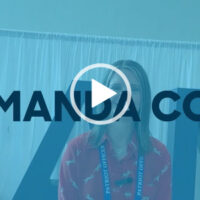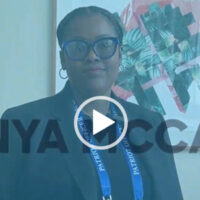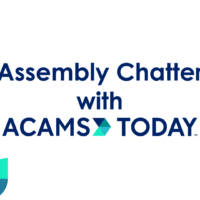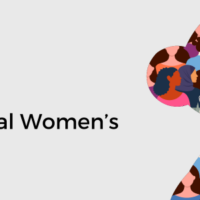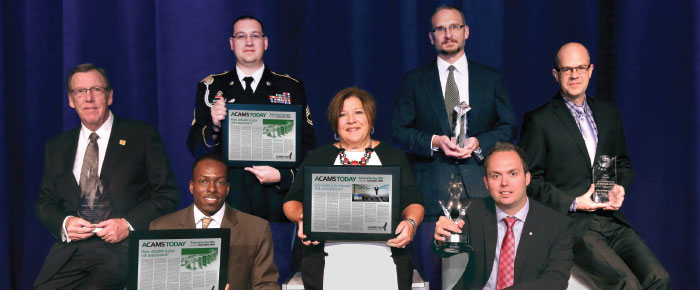
ACAMS Today had the opportunity to interview the award winners along with two members of the Montréal Chapter advisory board, Sylvain Perreault and Éric Lachapelle. The interview covers topics ranging from how they entered the AML/financial crime prevention field to predictions on industry challenges we will face in 2015. The knowledge, experience and wisdom held by these winners is grand in scope, to say the least. I hope you will enjoy getting to know our winners as much as I enjoyed interviewing them.
For the first time, we would like to present our Class of 2014 award winners to all of our members. Congratulations to:
- Kevin Anderson, Al Gillum Volunteer of the Year
- Brian Arrington, Article of the Year
- Clayton Byford, Article of the Year
- Carol Stabile, Article of the Year
- Michael McDonald, AML Pioneer Award
- Chuck Taylor, AML Professional of the Year
- ACAMS Montreal Chapter, Chapter of the Year
ACAMS Today would like to congratulate all of our 2014 award winners. To date, the Class of 2014 has been the largest. We had six individual winners and also our Chapter of the Year winner. ACAMS is proud of all of our members who help make ACAMS a premier association. We would like to take this time to publicly thank you all for your continuous contributions to ACAMS.
ACAMS Today: What inspired you to join the financial crime prevention field?
Kevin Anderson: I wouldn't say it was any lofty inspiration; my first opportunity in the AML field was mostly a matter of good fortune. It was enticing in that it offered more potential for advancement and that it was more challenging than my previous job in trust administration. There was also a sense that the work—years before the Patriot Act was enacted—was doing something to combat crime and make the community a better place instead of just serving clients and helping them make more money.
Brian Arrington: My entry into financial crime prevention was an "accidental" occurrence. I came into the financial services sector in the mid-1990s as a temporary-hire credit card fraud analyst at a major East Coast bank. Eventually, I was hired full-time and found the work so interesting and diverse—from mass fraudulent applications and mail theft to counterfeit cards—that I just followed my interests. From there, I leveraged my prior experience and moved deeper into the industry into transaction and portfolio risk analysis and ultimately credit fraud investigations, working indirectly with seasoned law enforcement professionals.
In these later roles I had a first-hand look at the rise of major fraud trends and techniques such as card "bust out," monetization, and shipping schemes; identity theft; account takeovers; mail fraud; counterfeiting and "skimming;" and organized credit fraud via the Internet. This was also my first exposure to SARs and the SAR filing process. I left the credit card industry for several years while working for one of the three U.S. credit bureaus, but I never forgot this exposure to financial crime and its impact on average consumers and the U.S. banking system.
I eventually returned to banking in an AML compliance role at a large U.S. bank just after completing my MBA studies, and though I didn't realize it at the time, the foundation for my entry into the AML profession was primed during those early years in the credit card industry.
I enjoy working in this field because of the complexity; it is always challenging and always changing
Clayton Byford: My inspiration to join the counter-threat finance community was really an evolution in my career path from some of my work in counter terrorism in Afghanistan and my experience supporting counter-narcotics investigations with law enforcement. A common theme has always been to identify groups or organizations that pose a threat, and then identify how and where they are vulnerable. Counter-threat finance focuses specifically on one of the two areas these groups are most vulnerable—payment and communications. I enjoy working in this field because of the complexity; it is always challenging and always changing, both for us and for those who wish to use it to support illicit organizations.
Michael R. McDonald: It was my career. In 1971 with a degree in accounting and not wanting to be an accountant, I joined what was then called the IRS Intelligence Division. Later the name was changed to Criminal Investigation Division. I have worked in the Financial Crime arena ever since.
Sylvain Perreault and Éric Lachapelle: To prevent a few rotten apples from spoiling a respectable and well-regulated industry servicing the whole community.
Carol Stabile: As a former international banker and head of Asia Pacific operations for a U.S. bank, my responsibilities included regulatory compliance. I also had several family members who pursued careers in law enforcement, so when the opportunity came along to work for a company on the forefront of financial crime prevention, I was excited to become part of that effort.
Chuck Taylor: Like many others in the field I fell into it. At age 29, while working for Bank of America, I decided that I wanted to be a prosecutor, so I went to law school and interned for a Deputy DA who was in charge of sex crimes and child abuse cases. I really enjoyed law school and helping to put bad guys away but by the end of my internship I had decided the job wasn't for me. As you might imagine the things I saw were pretty disturbing and hard to forget and it was not something I wanted to make a career of. I went back to banking as a compliance analyst (something I knew nothing about) at a small institution in Santa Barbara, California. They had been given BSA matters requiring attention by the OCC and needed someone to help with the remediation. Over the next few years I worked my way up and became a BSA officer and I really enjoyed the work. I'm very blessed that I fell into this field as it has been amazingly rewarding and keeps me entertained.
AT: There are always evolving threats and challenges for the financial crime professional, which do you foresee being the biggest challenge this coming year and how should the AML/financial crime field prepare to resolve it?
KA: The biggest challenge continues to be managing change, whether it is new products with new vulnerabilities, new classes of customers that are deemed to present risks that need to be managed or new regulatory expectations that need to be managed. I continue to be amazed that 13 years after the passage of the Patriot Act AML continues to be such a hot compliance topic, with new issues arising to keep AML professionals busy. The key to managing this is to be resourceful and flexible; having a great sense of humor, patience and a thick skin.
It is crucial as AML professionals that we better understand the impact of technology
BA: I believe that the growth and increasing sophistication of transnational organized crime is the most serious threat to the U.S. and, ultimately, the global financial system, both currently and over the next few years. From an AML and TF perspective, I believe the threat of transnational organized crime has been enabled to a large degree by technological advances in the form of the Internet and mobile communications, and it is crucial as AML professionals that we better understand the impact of technology if we are to have any success in stemming this problem.
There may be several keys to mitigating this threat. First is to recognize that a paradigm shift is needed to refocus financial crime prevention objectives to truly combat transnational organized crime. Without a clear vision and top-down leadership, even the best AML efforts are unsustainable. Second, AML professionals must seek to move toward or get nearest to the leading edge of understanding technology, both internally by seeking tools to more effectively aid AML initiatives, and externally by better understanding the dual uses that manifest themselves with each new technological advance. Third—and this matter was also discussed at this year's Vegas conference—I believe that the current gaps in AML legislation and international regulatory regimes being exploited by criminals must be narrowed if the AML community is to achieve any degree of success in minimizing the impact of illicit funds on the global financial services system. Policy changes are needed globally to aid the AML community if the U.S.—and ultimately the international financial services infrastructure—is to survive over the near and long-term.
CB: The largest threats we face are from transnational criminal organizations. The course of information and investigations over international borders is very complicated, and this is an advantage to these organizations. At least part of the answer to this is clear to define: better and more thorough communication between governments and financial institutions would help us to better understand the scope of this threat. However, it's not as easy to accomplish.
ÉL: We need to be aware of threats coming from the digital world (virtual currencies, new mobile apps, etc). AML specialists will need to be trained more about these new products and services. Training is the key!
MM: Technology. For example, where does a crime take place if it is a cyber-crime? How does one establish venue if the transactions are virtual and global in the cyber world. This includes the explosion of payment methods that are beyond the scope of many state and national (such as FinCEN) coverage. The AML professional needs to pay serious attention to cyber-crime, regulatory coverage of new methods to move value, and move beyond traditional financial transactions.
SP: The terrorist threat is the biggest challenge and we need to better our communication modes and the speed at which we are capable of transmitting pertinent information.
CS: I think most people in the industry will agree that cybersecurity and cyber threats will continue to pose an even bigger challenge in the coming year. A CDW Financial Services survey indicated 49 percent of the banks responding had a cybersecurity attack in the last 12 months. The AML/financial crime community can meet this challenge head on with proactive security measures that include:
- A sound cybersecurity plan
- Adequate resources trained in cybersecurity
- IT infrastructure and technology
- Increased employee security training and awareness
- Compliance with industry regulations
- Improved communications with customers
There is no substitute for first-hand experience
CT: Electronic transactions are evolving very quickly and will require a lot of attention in the coming year. Virtual currencies, Apple Pay, same day ACH, P2P transactions and new forms of payment processing all pose different risks and rewards. Keeping ahead of them all, trying to be properly educated, assessing their AML risk and putting the right controls in place is a daunting task. For me personally it's finding a way to move the virtual currency conversation forward and get banks more involved. I'm a fan of the technology and I hope it can gain widespread adoption on some level. To prepare, it's best to immerse yourself. If it's virtual currency that puzzles you most, buy some, use it, and go to a conference or local meet-up on the topic. There is no substitute for first-hand experience. Without that you can't make informed decisions.
AT: What is the most important lesson you have learned?
KA: To take pride in your own work and have your work reflect the fact that you put in a good effort. You are judged by others not on what you think, but rather how they perceive you. Thus, your work should reflect the fact that you care. If you just mail it in, people will see that and that might be the only perception they have of you.
BA: Never think for a minute that you know everything about AML. The techniques, instruments and distribution channels employed by criminals, money launderers and potential terrorist financiers change faster than the laws and regulations do, and the AML professional must operate as effectively as possible by bridging the gaps between the criminals and the laws. It is crucial to remain focused, stay current, learn to adapt to ever-changing circumstances and ultimately to think like a criminal or launderer in order to best position one's self to effectively identify ML trends and threats if you are to have any chance at effectively countering the problem.
CB: The value of your network. This industry is very large and getting ahold of who you need is not always quick or easy. Once you have a business card or even a name, it can get you the answers you're looking for in a fraction of the time. It is similar to a lesson I was taught in military intelligence school: "You don't have to know everything, you just have to know where to find it."
ÉL: It is all about a culture of compliance and culture needs time to change.
MM: Money laundering and other financial crimes will never go away and they will never be stopped. They will just change the look and the methodology. All the financial crime specialist can do is keep up with these events, pursue the financial criminal and his/her assets and increase the risk/reward ratio to a more acceptable level (from an enforcement standpoint).
SP: Nothing's perfect and keep working at it. AML is a pretty young industry and there are many things that need to be improved.
CS: Conduct your business with integrity and success will follow.
CT: That I need help. Risk decisions are best made with lots of input and opinions. The group of colleagues I have here at City National are amazingly knowledgeable, experienced and willing to help. They always come up with ideas and issues that I hadn't yet considered.
AT: Motivation is important for success; can you share what motivates you?
KA: Shared successes motivate me. I have always enjoyed being part of a team that works together well to develop a solution for a problem, whether it is a big problem or even a small one. I have been fortunate in my career to have worked with so many great teammates to develop a better way to do things. It is the feelings of accomplishment and camaraderie—and the knowledge that we can succeed by working together—that keeps me motivated to continue.
BA: My motivation comes from my desire to seek knowledge across a broad range of areas in order to reach and maintain the highest degree of knowledge that I possibly can, regardless of what my focus is. Within the AML profession, this means that I continuously seek cross-functional knowledge in the hopes that I can ultimately learn enough to effectively teach and benefit others.
CB: There are very bad people in this world that do very bad things, but they need resources to do them. I hope that my work—our work—makes it harder to operate and in some cases stops them from doing more harm.
ÉL: AML is very practical and as financial institutions, we can make a difference.
MM: I have spent more than 45 years in the financial crime/AML/counter-terrorist financing arena. Winning a case in court motivates me. Seeing criminally derived assets forfeited and fraud proceeds returned to harmed parties motivates me. Seeing financial transactions lead to prosecutions motivates me.
SP: Young people getting into the AML field—an exciting career is ahead for them all.
CS: Every day presents new and different challenges. The more difficult and challenging the task, the more motivated I am to do a good job and get it done to the satisfaction of our clients. Knowing that your hard work is valued is a huge motivator.
CT: Ensuring that I properly manage regulatory risk while not being a hindrance to business. It's a fine line that can be difficult to manage, but it's always interesting.
AT: What is your proudest moment as an AML professional?
KA: I think it would probably be the time my first article was published in ACAMS Today (back in 2007). I had not written anything for a public publication since high school and certainly not anything that was circulated quite as broadly as ACAMS Today. I remember asking the ACAMS editorial staff for extra copies to send to friends and relatives. Little did I realize, that would be the start of a run of dozens of articles for ACAMS Today.
BA: As a co-recipient of this year's ACAMS Today Article of the Year award, if I retired from the profession tomorrow, I think this would be one of my proudest accomplishments. Not for receiving the award itself—although that's truly amazing given the odds—but knowing that the leaders and peers in my chosen profession believed that the article that I co-authored could potentially benefit what is now a very global AML community. When I write articles for ACAMS Today, I do so with the hope that AML professionals could potentially gain insight from the information provided.
CB: After being the first in my program to earn the CAMS certification, that accomplishment was briefed up to the Office of the Secretary of Defense That was a great success for us in developing the recognition that soldiers can be valuable resources in this complex industry.
MM: The creation and success of Operation Greenback in 1979, Miami, Florida.
SP and ÉL: Launching our Montréal Chapter and helping bring professionals together.
CS: I feel very proud when I'm asked what I do for a living and I can explain the role of humans and technology in fighting terrorist financing, money laundering and other financial crime. Of course, being recognized by my peers and receiving the Article of the Year award from ACAMS in Las Vegas this year was by far my proudest moment so far.
CT: Receiving this award based on recognition from AML peers has to be it. Aside from that it's each time a colleague goes out of their way to thank me for helping with a difficult BSA issue. In many instances they are surprised that I'm willing to explore options rather than saying no at the outset.
AT: Any advice for AML professionals just getting started in the financial crime prevention field?
KA: I have found it helpful to have an insatiable desire to learn new things and to relish taking on challenges, as this keeps the job from becoming dull. As much as a risk-based approach relies on interpretations of facts, I'm always trying to learn more about the "how" and the "why" things are done, as this gets to the underlying principles behind a scenario and helps determine the best ways to mitigate the risks that are truly present. Accumulating this knowledge and applying it in different scenarios over the years has made me somewhat of a go-to person for AML advice and counsel. This is the kind of success that will get an AML professional on the path to advancement.
BA: I would advise anyone new to financial crime prevention to maintain a focus on continuous learning. To obtain any degree of success and longevity in this field, individuals should seek every possible opportunity to obtain as much practical knowledge about criminal justice, fraud, AML laws and regulations and information technology and the synergies between them and be prepared to apply what you know in any scenario. There are a number of options available for individuals with diverse backgrounds and interests.
Find what motivates you and what you have a passion for in this industry and you will be successful
CB: Find what motivates you and what you have a passion for in this industry and you will be successful.
MM: Keep current and think outside the box. Remember pagers? Nope, nobody does these days. That is the point. The pager companies never projected the explosion of other communication technologies. The same applies to AML and financial crime. The virtual world is here to stay and that includes mobile banking, informal value transfer systems and lack of adequate regulatory coverage. That is how criminal proceeds will be moved in the future.
SP and ÉL: Make sure your IT skills are always upgraded or at least kept current since crime prevention is very much a "data game."
CS: Yes, this is what I recommend:
- Get involved. Join an industry group such as ACAMS and participate in as many knowledge events as you can. Speak to other people in the industry to gain their perspective on specific issues.
- Stay current with trends and regulations. Read, read, and read. There are lots of good articles, whitepapers and publications out there.
- Find a mentor—someone who will take the time to speak with you and offer advice on your career progression.
- Be a self-starter. Learn and do your job well, then demonstrate your willingness to take on other tasks.
CT: Educate yourself and network with folks already in the field. It's hard to break in without experience, so the better you can intelligently discuss issues the easier it will be to progress in the field. You will also need to check your ego at the door. You will most likely have to start at the bottom of the totem pole, so don't reject an entry level job because you feel it's beneath you. Get in the door and make the best of it. It won't take long to excel if you have the right attitude and work ethic.
AT: I would like to ask Sylvain and Éric two additional chapter-specific questions. Describe your most successful chapter activity and why it was so successful.
SP: All of our "lunch and learn" events were great successes. Members are always eager to learn more!
AT: How can you increase participation in your chapter?
ÉL: Bring a national event with well-known professionals to speak at chapter events in the near future.
SP: More cocktail events. People are thirsty and love to network!
About the Winners
Kevin Anderson, CAMS
Kevin Anderson has been with Bank of America since 1990, working in various capacities in retail banking, insurance and wealth management. Since 1997, he has worked in compliance, primarily focusing on anti-money laundering (AML) issues. In the compliance capacity, he co-authored the initial enterprise-wide AML policy and program integrating requirements from various businesses as well as the laws and regulations. He has been involved in subsequent revisions, incorporating regulatory and other changes, as well as providing guidance to lines of business globally. He has developed and conducted AML training and supported risk assessments for the enterprise as well at the business unit level. He designed, implemented and managed the company's process to obtain and validate Patriot Act certifications for non-U.S. banks for several years. He has built and implemented processes to support consistent documentation of the AML policy and program.
In addition to AML policy work, Anderson helped design and establish a framework for overseeing the development and implementation of enterprise-wide compliance and operational risk policies, including privacy, fair lending and payment systems risk.
Anderson has been a Certified Anti-Money Laundering Specialist (CAMS) since 2003 and has served on the ACAMS Editorial and Education Task Forces for several years. He has published numerous articles on money laundering topics in publications such as ACAMS Today and the ABA Banking Journal.
Brian Arrington, MBA, CAMS
Brian Arrington is an examiner with the Federal Reserve Bank of Chicago. He has over 15 years of experience in the financial services industry, with broad exposure to compliance regulations across a diverse range of institutions. Prior to joining the Federal Reserve Bank, Arrington was a management consultant on Bank Secrecy Act/anti-money laundering (BSA/AML) and Office of Foreign Assets Control (OFAC) regulatory compliance matters for a "Big 4" accounting firm where he provided advisory services to large complex financial institutions.
Previously, Arrington was a BSA/AML and OFAC compliance officer for a large bank in the Chicagoland area where he managed BSA/AML investigations, OFAC compliance processes and key BSA/AML/OFAC compliance program initiatives.
Arrington is CAMS certified, communications director for the executive board of the ACAMS Chicago Chapter, and a member of both ACAMS' Editorial and Education Task Forces. He earned his dual MBA from the Kellstadt Graduate School of Business, DePaul University in international economics and business management.
SFC Clayton Byford, CAMS
SFC Clayton Byford is a counter threat finance analyst in the Illinois Army National Guard Counterdrug Task Force. He is currently assigned to the Chicago High Intensity Drug Trafficking Area (HIDTA) Intelligence Support Center and the High Intensity Financial Crimes and Money Laundering Area (HIFCA) under the Financial Crimes Enforcement Network (FinCEN). He has over 10 years of experience as a military intelligence analyst with two combat deployments to Afghanistan. Byford has been active in counter narcotics for the last seven years, with the last three focusing specifically on AML, financial crimes and financial intelligence. Byford is a Certified Anti-Money Laundering Specialist (CAMS).
Éric Lachapelle, M.Sc., CFA, CPA, CGA, CRCP
Éric Lachapelle is senior director, Corporate Compliance and Anti-Money Laundering with the Desjardins Group since 2011. Lachapelle manages, among other things, the Center of Excellence responsible for the compliance program, relations with regulatory authorities and all activities regarding the prevention and detection of money laundering and terrorist financing for Desjardins Group.
Before joining Desjardins Group, Lachapelle held various positions within the financial services industry including those of manager advisory services, risk, performance, technology and compliance at KPMG Canada, director market risk at Desjardins Securities and independent advisor for banks, trusts, pension funds and insurance companies.
Lachapelle has a master's degree in finance from the University of Sherbrooke. He was certified Chartered Financial Analyst (CFA) in 2006, General Accountants (CGA-CPA) in 2008 and more recently in 2012 Regulatory Compliance Professional (CRCP) from the Wharton Business School.
Michael R. McDonald, CAMS
Michael R. McDonald is a 27-year veteran of the Internal Revenue Service, Criminal
Investigation Division. He retired in 1998 and formed a Miami-based consulting firm specializing in international money laundering, Bank Secrecy Act (BSA), USA Patriot Act, asset forfeiture, compliance and related matters. The firm is a network of retired special agents, each with in-depth experience in money laundering investigations. During his tenure with the IRS Criminal Investigation Division, McDonald held several field agent and managerial positions and directed investigative resources in many high profile money laundering task forces. He was the lead manager in the development of the first money laundering task force, Operation Greenback. He was the first IRS coordinator to the Florida/Caribbean Organized Crime Drug Enforcement Task Force and the South Florida High Intensity Drug Trafficking Area Task Force (HIDTA). He became widely known as one of the government's premier experts on money laundering and the BSA.
Sylvain Perreault, CAMS
Sylvain Perreault is chief compliance officer of Desjardins Group since March 2011. Prior to this recent appointment, he was chief operating officer of Desjardins Securities. He has been with Desjardins since 2004.
Perreault is chair of the board of the Investment Industry Association of Canada (IIAC), chair of ACAMS Montréal
Chapter and a member of the Special Regulatory Committee of the Montréal Exchange. He is past-chair of the Quebec District Council of Investment Industry Regulatory Organization of Canada (IIROC), past-chair of the Compliance and Legal Section (CLS) of IIROC as well as past-chair of the National Advisory Committee (NAC).
He is a member of the Quebec Bar Association since 1984, and between 1988 and 1997, he occupied many functions at the Montréal Exchange, one of them being the senior vice president, markets. He was also director, capital markets, at PricewaterhouseCoopers, where he managed, among other things, the launch of marketplaces in emerging markets. Perreault was one of the founders of Jitney Group, a brokerage firm specializing in pro trading, where he assumed presidency until 2004.
Carol Stabile, CAMS
Carol Stabile joined Safe Banking Systems (SBS) in 2006 as senior business manager with responsibility for global client engagements and strategic development of products and services. Her business role expanded to include SBS' operational policies and vendor management. In her marketing role, Stabile has re-branded SBS' products and services, manages SBS events and is a regular contributor to ACAMS Today and other industry publications.
Stabile is a former international banker with over 25 years of experience in both the operations and technology side of the business. She has spent a significant part of her career overseas in Asia, Europe, Latin America and Bermuda. She holds a BBA from Pace University, New York and has taught international banking operations at the American Institute of Banking in New York. In 2008, Stabile received her CAMS certification.
Chuck Taylor, CAMS
Charles "Chuck" Taylor is senior vice president and Bank Secrecy Act (BSA) officer for City National Bank (CNB). A 30 billion dollar bank headquartered in Los Angeles with offices in California, Nevada, New York, Georgia and Tennessee. He has oversight responsibility for all aspects of the BSA function including maintenance of the Bank's BSA program, BSA risk assessment, AML monitoring, currency and suspicious activity reporting, customer identification program, sanctions filtering and BSA training.
Taylor completed his Juris Doctorate in 2001, received his Certified Anti-Money Laundering Specialist (CAMS) certification in 2003 with the inaugural class and became a Certified BSA officer in 2007. In 2010 Taylor completed the Masters level Bank Management & Finance program through Pacific Coast Banking School. Taylor is a founding member and current co-chair of the Southern California Chapter of ACAMS.
Taylor is also a faculty member for the ACAMS Advanced Certification Program and the CAMS Examination Preparation Course.







